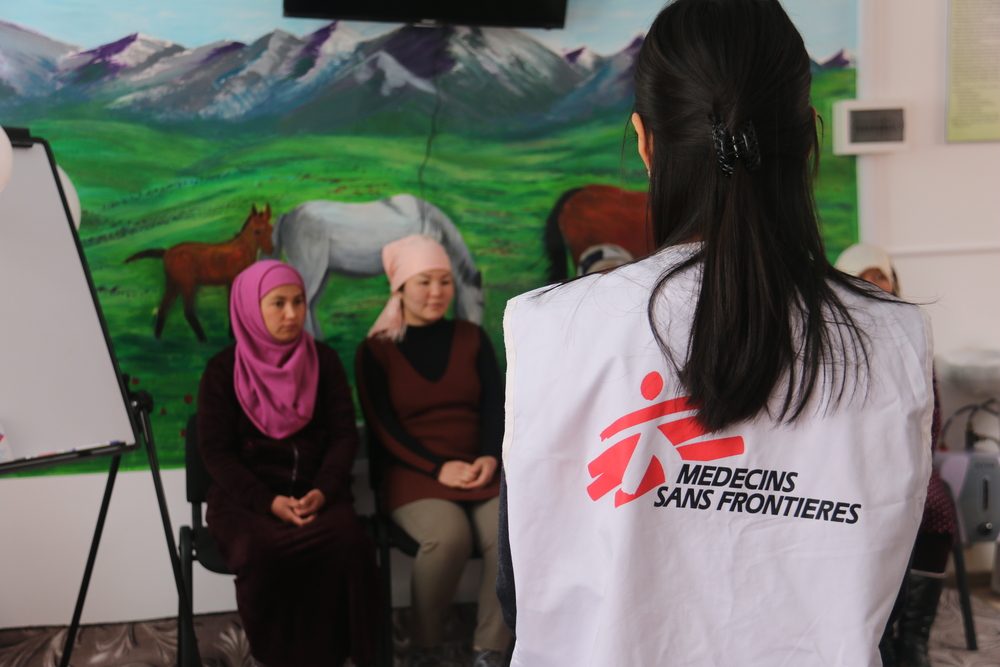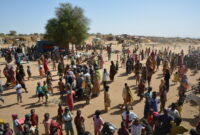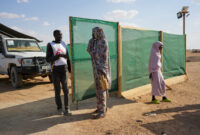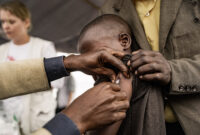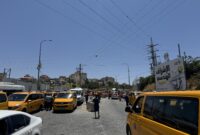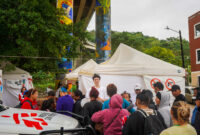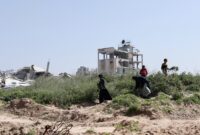The COVID Dilemma: Population vulnerability and political stability
By Kevin Coppock, Head of Mission in Kyrgyzstan.

The COVID-19 pandemic is confronting many countries with a painful dilemma. Flatten the epidemic curve with measures that limit interaction between people or allow people to interact more freely and continue to make a living. In short, protect human health or save the economy. In Canada and the United States this dilemma is played out on the news and social media on a daily basis.
However, in lower income or war-torn countries like Afghanistan, Yemen or South Sudan the dichotomy between health and the economy is much less distinct. A family that grows oranges in their garden trades them in the local market for rice and fish that will be eaten for supper. A father is paid for labour today that puts food on the table tomorrow. There are no credit cards, savings accounts or a support cheque from the government. Forcing people to stay at home to save lives will very quickly mean no food on the table. It means children with hungry bellies and the desperation of parents to avoid starvation. From a public health point of view, interruption of access to drugs or vaccines for other illnesses as well as COVID-related restrictions will result in many more deaths than COVID itself.
The alternative, keeping the country open for business, could result in up to 34 times the number of deaths[1] compared to policies that aim to suppress the outbreak by restricting physical interaction. Already fragile healthcare systems will be totally overwhelmed, unable to cope with either the influx of COVID-19 patients or regular emergency cases compounding the death rate, as we saw in the West African Ebola outbreak. As an indication South Sudan has one ventilator for every 3 million people. Imagine powerless hospital staff who feel they are more focused on crowd control for the sick and dying than meaningful triage and patient centred care. Indeed, in many situations, it may be safer for people to just stay at home.
In Kyrgyzstan, a middle-income country where I am currently leading a Doctors Without Borders/Médecins Sans Frontières (MSF) medical response, MSF is playing its part in addressing the pandemic by supporting the Ministry of Health with health facility infection prevention control, and COVID-19 mobile teams in the remote Batken region, where we have an existing project supporting the Ministry of Health focusing on environmental health, non-communicable disease and women-children health. Our team in Kyrgyzstan has experience in outbreak response, including recent experience with the Ebola outbreak in the Democratic of Congo, allowing us to provide valuable technical support along with our personnel, material and logistics support.
Social solidarity will provide some resilience, in Kyrgyzstan and within many societies with precarious healthcare systems. Here I see and hear of spontaneous social networks that have formed to identify and provide food packages and other assistance to families who have run out of the basic necessities of life. In 2007, I observed the astounding adaptability of the people of Zimbabwe who somehow managed to cope despite hyper-inflation. It is an observation I have in most crisis zones. But these grass roots survival skills only go so far. Eventually there is a breaking point.
There is no clear answer. Nonetheless, it would be a mistake to transfer the public health logic that applies in Canada or Europe to Yemen or the Democratic Republic of Congo. Both latter countries had populations in danger before the COVID-19 pandemic. What is clear is the solution to one problem cannot create an even greater one, whether it is hunger, violence or repression.
Put simply, the COVID-19 dilemma creates an impossible choice between two evils. A family whose loses loved ones to this new disease, or parents who cannot put food on the table or have their child vaccinated. Of course, this is an over-simplification, but the dilemma is real. It is a critical factor in how we understand population vulnerability and stability in this new COVID-19 world. For MSF’s medical humanitarian operations, it translates into a more austere global triage in at least the medium term.
[1] Imperial College London: WHO Collaborating Centre for Infectious Disease Modelling, MRC Centre for Global Infectious Disease Analysis. Report 12 global impact COVID-19
